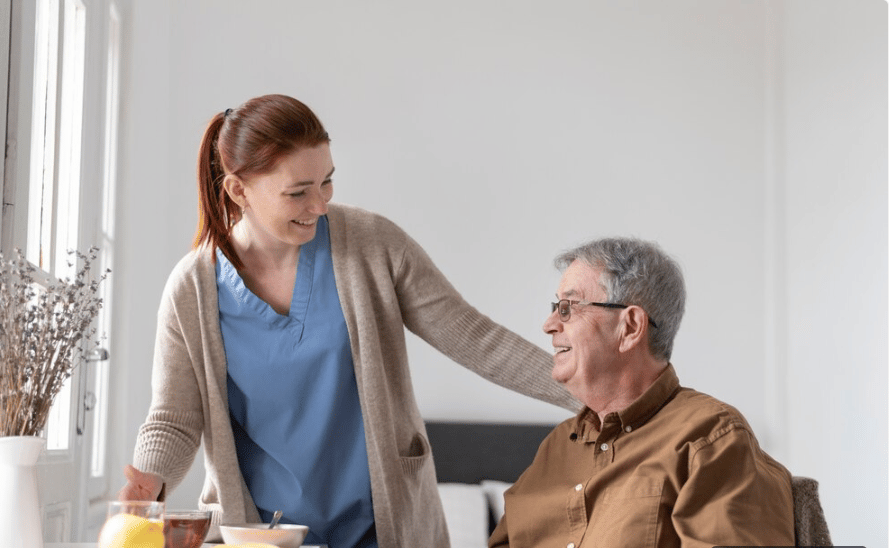How to Build a Daily Routine for Recovery: Caregiving with Structure and Flexibility
Recovery is not one-size-fits-all—especially after a life-changing event like a stroke, surgery, or long illness. As a caregiver, you may be figuring things out hour by hour: What time are the medications due? How do I fit therapy into our day? When do I breathe? Building a daily routine for your loved one can feel like solving a puzzle—but when done with compassion and flexibility, it becomes one of your greatest caregiving tools.
PERSONALIZED CARE
Erlyn A. Agustin
4/28/20252 min read


Why Routines Matter in Recovery
A daily routine isn’t just a checklist. It’s a message to your loved one:
"You are safe. You are supported. You are not alone."
After the chaos and fear of a medical crisis, predictability brings peace.
For the person recovering, a routine can:
Reduce anxiety by providing a sense of order and calm
Improve memory through daily repetition of activities
Encourage physical healing through consistency in movement and rest
Restore a sense of purpose and control through meaningful daily tasks
For caregivers, having a routine helps:
Minimize surprises and reduce stress
Cut down on decision fatigue by creating natural flow points in the day
Make space for their own well-being without feeling guilty
It is important to remember: rigid schedules can sometimes backfire.
Flexibility is key, because healing rarely happens in straight lines.
At Unique Quality Care, we encourage structured flexibility—an adaptable framework that honors both consistency and compassion.
How to Build a Flexible Daily Routine That Works
You don’t have to schedule every minute.
Think of it more like creating a gentle flow through the day, allowing space for care, movement, connection, and rest.
Here’s a sample structure you can personalize based on your loved one’s abilities and needs:
Morning (7:30–10:00 AM)
Gentle wake-up: open the curtains, play soft music
Hygiene care: brushing teeth, washing up, dressing comfortably
Breakfast and morning medications
Light mobility: a short walk indoors, seated stretches, or chair yoga
Caregiver Tip:
Cue tasks with simple, positive reminders:
"After breakfast, we’ll do some stretches by the window."
Start slow, celebrate small wins, and keep expectations realistic.
Midday (10:30 AM–2:00 PM)
Therapy or rehab exercises
Brain activities: puzzles, coloring, or memory card games
Lunch and hydration
Quiet time: reading, napping, or simply resting
Caregiver Tip:
Energy often dips midday.
Plan quieter activities and allow time for rest without guilt. Rest is part of recovery, not a detour from it.
Afternoon–Evening (2:30–6:30 PM)
Low-pressure activities: folding towels, listening to music, or watching a favorite show
Connection time: phone calls with family, visits from friends
Dinner and evening medications
Caregiver Tip:
Whenever possible, offer choices to your loved one.
"Would you like chicken or soup tonight?" or
"Would you like to call your sister before or after dinner?"
These small decisions build independence and dignity.
Night (7:00–9:00 PM)
Wind-down ritual: warm tea, calming music, and soft lighting
Personal hygiene and bedtime preparation
Reflection or gratitude practice: sharing a memory or quiet reflection
Sleep
Caregiver Tip:
Consistent bedtime cues, like a favorite blanket or quiet music, help regulate natural sleep rhythms. Keep nighttime routines calm and familiar.
Final Thoughts
Caregiving routines are not about getting everything "right."
They are about creating an environment where healing and humanity can thrive.
Some days will go smoothly. Some days will not.
That is not a failure; it is part of the caregiving journey.
Caregiving is not measured by how perfectly you follow a schedule—it is measured by how you show up with love, patience, and flexibility, even when plans change.
A flexible routine offers both of you something vital: a rhythm to hold onto, even when the world feels uncertain.
🧡 You are doing more than you know.
🧡 You are building safety, strength, and hope—one small moment at a time.
At Unique Quality Care, we are honored to walk alongside you through every step of the caregiving journey.


Our Links
Mailing Address
P.O. Box 115 Garden Grove
CA 92842-115
